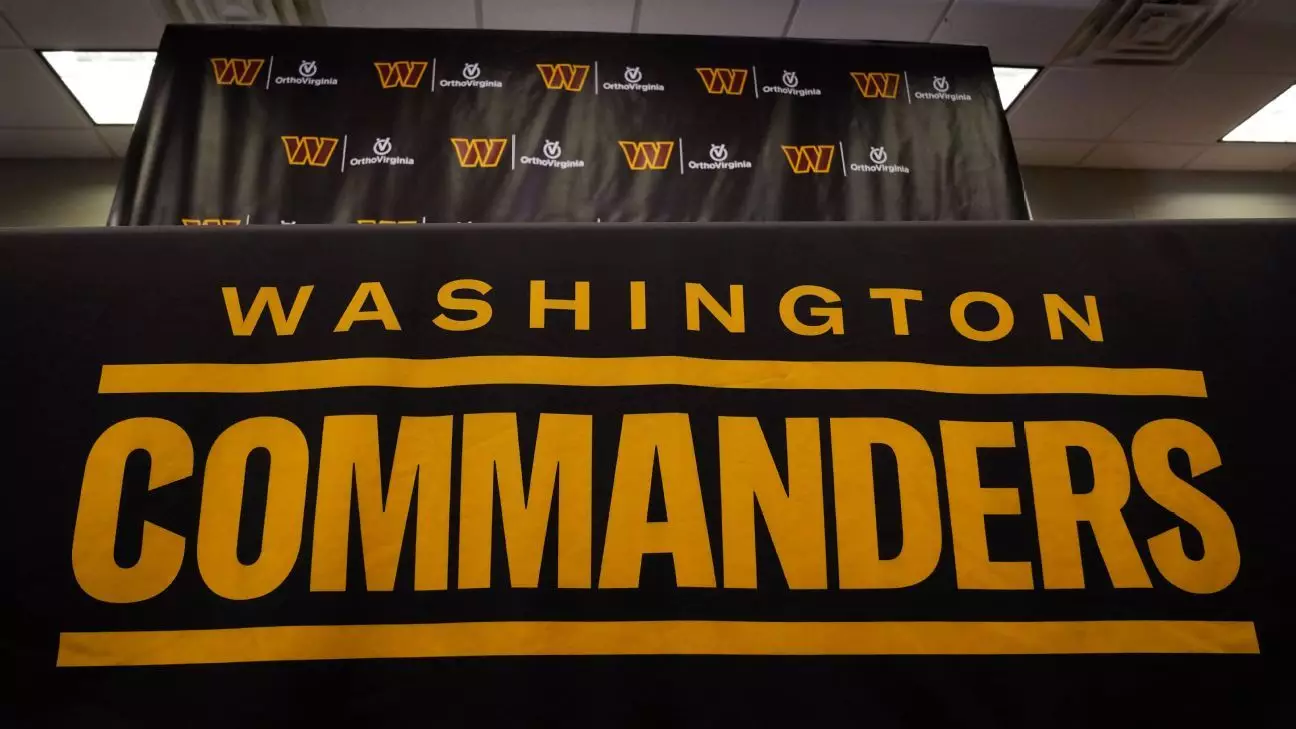The Washington Commanders have long been associated with their former home at RFK Stadium, where they celebrated multiple Super Bowl victories from 1961 until 1996. However, the path to potentially returning to this historic site has faced significant roadblocks in recent days. The latest developments highlight the complex interplay between local government ambitions, federal legislative action, and public financial concerns, as the possibility of acquiring a crucial parcel of land for a new stadium hangs in the balance.
Hope was palpable earlier this week as talks surrounding a new government spending bill indicated the inclusion of a land provision designed to facilitate the transfer of roughly 170 acres of federal land to the District of Columbia. This transfer was anticipated to help pave the way for the construction of a modern stadium at the RFK site, thus rekindling the Commanders’ historic ties to the location. However, the exclusion of this pivotal provision has shifted the narrative from optimism to uncertainty. Without the land transfer clause in place, the chances of the Commanders returning to DC have significantly diminished.
D.C. Mayor Muriel Bowser, responding to misinformation circulated by an advisor to President-elect Elon Musk, emphasized that no public funds—or specifically, federal funding—were earmarked in the current legislation for a new stadium project. This statement underscores the need for careful communication regarding the financial aspects of the stadium development process as the local government seeks to secure resources for urban renewal and revitalization.
The spread of misinformation on social media platforms highlights a critical element of public discourse surrounding stadium financing. Musk’s tweet erroneously suggested that the spending bill allocated $3 billion for a new stadium, an assertion quickly corrected by Mayor Bowser. The reality is more nuanced: while the bill does not allocate federal funds for stadium construction, it does aim to transfer the RFK land to the city, which could eventually foster private investment in a new sports facility.
The mayor outlined the district’s intention to use the land for broader urban improvement initiatives rather than a specific stadium project. This distinction is essential, as the final interpretation of the funding’s intended use will profoundly affect local perceptions about public investments in sports infrastructure.
For fans of the Commanders, RFK Stadium represents more than just a place to watch games; it embodies a rich legacy of success. Five Super Bowl appearances and three championships marked the franchise’s heyday, a period that many supporters yearn to see replicated. However, since moving to Landover, Maryland, the franchise has sought ways to reclaim that glory.
The RFK site has been positioned as the preferred destination for a new stadium, or at the very least, a significant redevelopment project. However, the hurdles in acquiring the land reveal the complexities involved in governmental planning and the push-and-pull of inter-state relations, particularly as Maryland officials express interest in retaining the Commanders within their jurisdiction.
As it stands, the District has a lease on the RFK property that extends for another 14 years, which complicates the potential for immediate funding of a new stadium. The Commanders, under new ownership, have expressed aspirations to evolve their home field experience but remain tethered to uncertainties about location and legislative support.
Commanders owner Josh Harris has indicated a desired timeframe for a new stadium by the year 2030, a goal that could be challenged if further legislative delays persist. The lack of a land transfer in the current bill means that the timeline for securing a new capital for the team could become lengthy, with implications for both the franchise and its sizable fan base.
The situation facing the Washington Commanders encapsulates a broader narrative of sports teams negotiating new homes and organizing funding across governmental jurisdictions. The withdrawal of the land transfer provision from the recent spending bill represents not just a setback for the Commanders, but it also reflects the complex and often contentious relationship between federal, state, and local governments concerning the future of public sports facilities. As fans and city officials alike wait for clearer paths forward, the hope remains that the Commanders will eventually return to the stadium that first brought them glory, though the road to that reunion is fraught with uncertainty and complexity.

